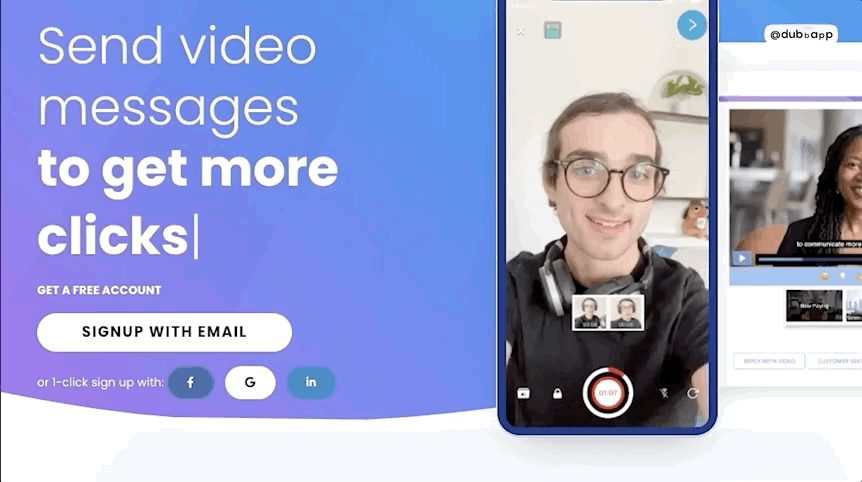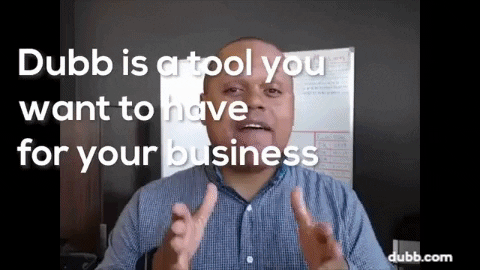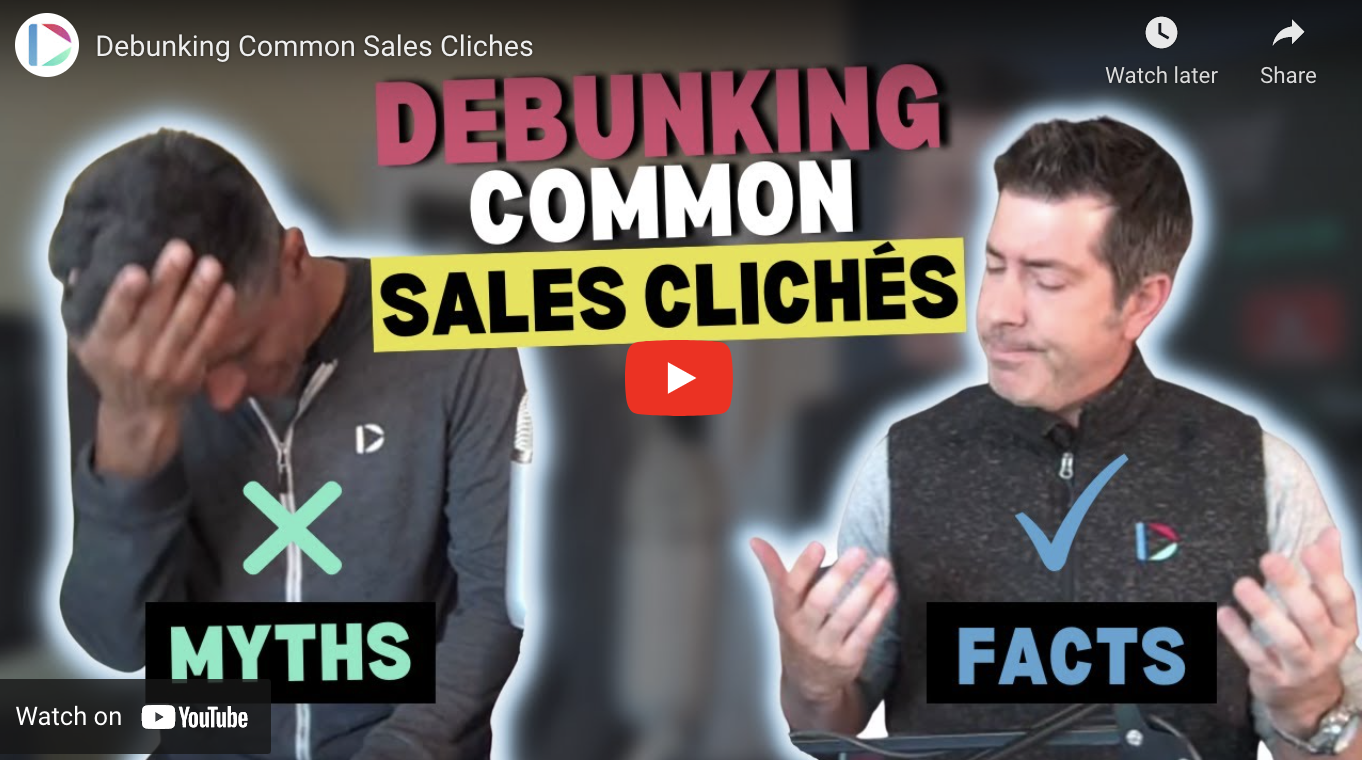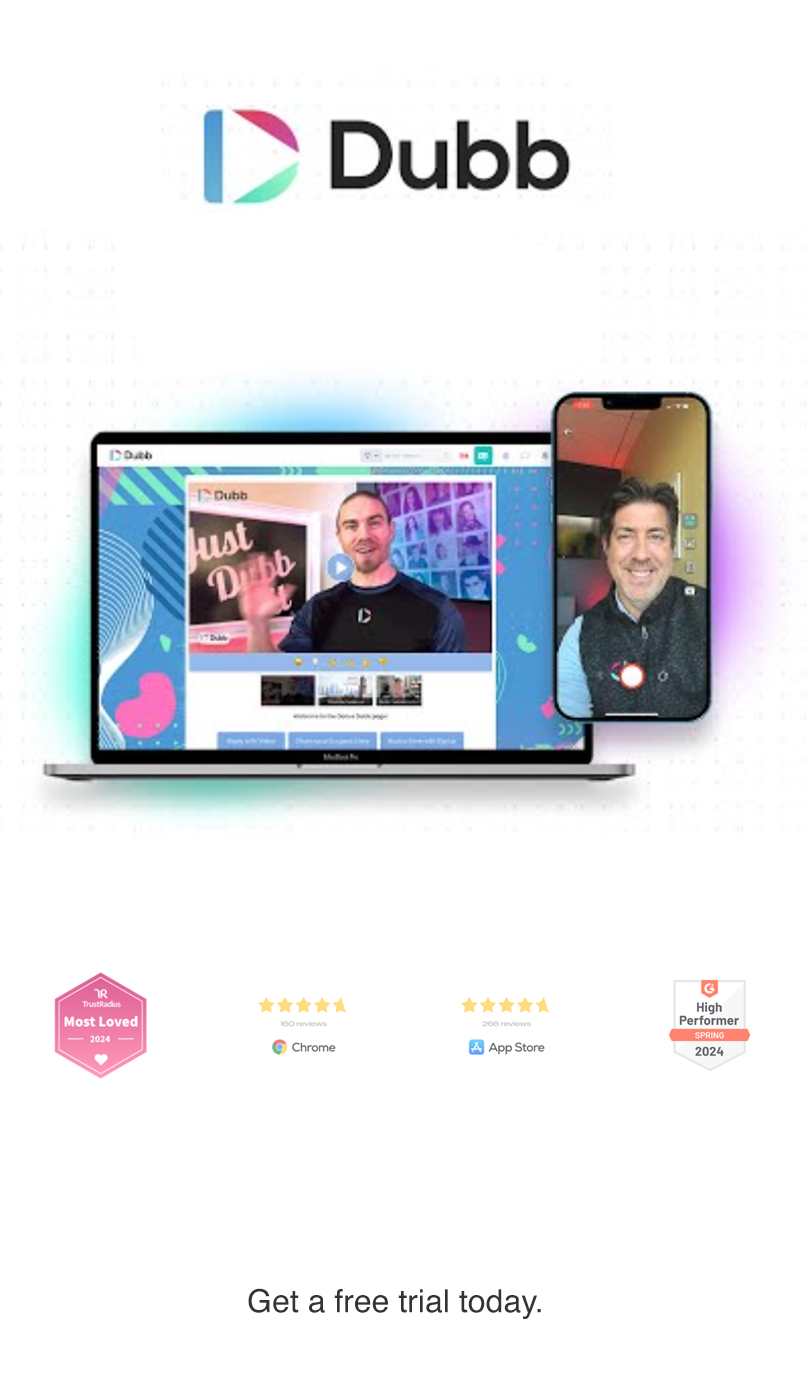In this recap from a recent episode of RevShow, Rob and I discussed common sales cliches and why we can debunk them. If you enjoy this discussion on common sales cliches, I encourage you to check out the RevShow YouTube channel. There, you can view prior episodes and subscribe for more episodes in the future. Enjoy!

The Sales World Runs on Cliches
Stop me if you have heard some (or all) of these phrases before:
The gold is in the follow-up.
Always be closing.
It’s all about the hustle.
It’s not what you know, it’s who you know.
Looks sell.
Coffee is for closers.
Cliches are all around us. We use cliches when we talk about our dating lives or when we are talking about the great (or not-so-great) work day that we had. We rely on cliches in our daily language because they often have some fundamental truth that underlies them. That being said, there are some cliches that aren’t exactly on the mark. They have become all too common in our daily vernacular, yet they may lead you astray if you choose to follow them.
This is especially true in the sales context. As salespeople, it’s appealing to follow common sales cliches and rules of thumb in our daily work. The thinking is that by following these cliches, we will get much closer to our sales goals. We’ll do so by building better relationships and easily moving our prospects down our sales funnels.
Unfortunately, the reality is quite different. There are a good number of common sales cliches that will actually get you further away from your short-term and long-term sales goals. Even if it seems like these common sales cliches are helpful, they may be working against you.
Because of this, I want to spend some time debunking some of the more common sales cliches that we see today. We are going to focus on the six common sales cliches that I mentioned above. Whether you have heard of some or all of these cliches, I recommend that you take a good, hard look at them.
The good news? While your competitors may be relying on these common sales cliches at face value, you can go beyond these common sales cliches and get to some fundamental truths. From there, you can implement those truths, develop outstanding relationships with your audience, and hit your sales goals.
“The Gold Is In The Follow-Up”
Rob and I have talked about this sales cliche pretty frequently. As sales professionals, we constantly hear stories about following up with our prospects. Most often, the stories end with positive results. A particular sales professional is persistent. She follows up five (or more) times and successfully gets a huge sale.
One of the big reasons that we disagree with this cliche is because of another expression, which is “It is all about the first impression.”
This expression is important because first impressions catalyze the entire relationship with a given prospect or customer. Quite obviously, a first impression is how you and another person are initially connected. Studies show that first impressions truly count. They can make the difference between generating a sale and losing a customer for life. This is why getting recommended to someone is often the most effective way to create a business relationship. Starting a relationship through a strong, positive referral is an excellent way to build trust. It will accelerate you toward a sale.

In many ways, the conversation in this section is about shifting the gold. You want to take the gold out of the follow-up and place it into the first impression. The benefit is clear: if you make your first impression golden, follow-up is just part of the communication process. So long as you don’t commit any unforced errors, it is simply a formality.
In the business world, there is this common belief that people need to have certain attributes to attract others. Perhaps they need to be an author or a keynote speaker. Maybe they even need to host a TED talk or be the founder of a well-known podcast. These things may help as you get yourself on the stage, but at the same time, the law of attraction does not work with people that are overly pushy. Instead, it works with people that attract others based on value, their interesting personality traits, and curiosity.
The one thing that you want to do here is take that nugget of gold that you had in the follow-up and direct that toward data. At Dubb, we are all about data. Using our platform, you can leverage all types of data to accomplish your sales and marketing goals.
When you record and submit a video within the Dubb video sales system, you can use the data you receive to further develop a specific relationship. For instance, if you see that a prospect only watched a portion of your video, you can respond a certain way. If that same prospect watched the entire video, you can respond in an entirely different way. You can ultimately make a smart, data-driven call, which makes it much more likely that you will build a stronger relationship and actually generate a sale.
Think about that for one second. Instead of following up in a cold way (like saying, “I just wanted to bump this email to the top of your inbox”), imagine if you could provide context as to why you are actually reaching back out. There are many different ways that you can go forward with this. For example, you can say something like, “I noticed you watched all of the video that I just sent you. I also noticed that you clicked on the call to action button and checked out that specific case study. Would you like to get on a call to discuss how our product can help add value to your business?” While you will certainly want to personalize this message, this simple example goes to show how you can use data to make your outreach that much more targeted.
Really, these types of intelligent touch points make people curious as to why you are reaching out to them. Because of this, they are more motivated and inspired to reach back out to you. So when you hear the cliche “the gold is in the follow-up,” I encourage you to instead think of the expression “It is all about the first impression.” This can save you from some headaches and help you build strong relationships from the get-go.
“Always Be Closing”
When we think of the term “always be closing,” we naturally think of the movie Glengarry Glen Ross. The movie has an excellent cast, including Alec Baldwin, Kevin Spacey, Al Pacino, Ed Harris, and more.
As you likely know, “always be closing” is one of the most well-known lines in the movie. Alec Baldwin summarizes the phrase as ABC as he tells some of his colleagues what it takes to succeed at selling. It is a compelling scene and one that many people reference when discussing the movie.
At Dubb, we have a different take on this common sales cliche. It isn’t always be closing. It is ABO: always be opening.
But let’s take one step back. Simply put, the power is in the connection. When we find ourselves on other people’s stages (and more importantly, when we create our own stages), we amplify our voices. It is such a great way to attract people so that we can open relationships. Ultimately, we strengthen our networks and create mutual value.
One of the common missteps that many salespeople make is that they start prospecting by reaching out to cold prospects. Essentially, they are going through the grind and making 100 calls per day (or even more). While they may find some success through this approach, it is a slog. It takes a significant amount of time to find a warm prospect and move them through your sales funnel.
Instead, I want to ask you one clarifying question: what if you started to reach out to people that you already have a relationship with? I’m talking about previous customers and people that are already in your communities. This can be everyone from one of your most loyal customers to a prospect that said, “No, for now,” when you were trying to sell her your product or service.
What you can do is interview those individuals and ask them several questions. For purchasers, you can ask why they joined you and your company. See what benefits they received and what results they obtained by investing in your product or service. If you are speaking with someone who turned down your product or service, see if that product or service (or a new product or service) can add value to their lives right now.
These types of conversations are not about closing; instead, they are about the opening. By being genuine and seeking to add as much value as possible, you can be in an excellent position to record a sale.
Another great thing about these conversations is that you get referrals. If you ask for a referral from someone that you already have a relationship with, chances are they are going to say, “I’m here to help. Here are three people that you should definitely talk to. It would be great for what you are selling.” These referrals are going to be absolutely huge as you seek out other customers. They are going to provide social proof to you and your organization, making it much more likely that the referred prospects will make a purchase from you.
Now, remember: customer care is customer selling. From the moment you begin the relationship, you are going to want to step into your target’s shoes. See the problems they are facing in their lives and determine whether your product or service can help. By leading with value, you can get beyond “always be closing” and create a strong, long-term relationship with anyone.
“It’s All About the Hustle”
The next common sales cliche that I want to discuss is typically found on the basketball court or the football field. That cliche is “It’s all about the hustle.”
It’s encouraged to hustle in sports. This is true whether you are an NFL cornerback trying to catch a sprinting wide receiver in the Super Bowl or are playing your first soccer game in your hometown. Hustling is a good thing because it shows that we are willing to go the extra mile to help our teams. Even if we are feeling tired or exhausted, we put in the work and get the job done.
With all of that said, the hustle glorification in business can be counterproductive. This is the idea of saying, “Wow, I have been working 100 hours per week” and others saying in response, “Wow, that is so impressive.”
Think about this for one second: there has been a flood of rhetoric and memes about hustling. It is all about grinding, drinking coffee, working, rinsing, and repeating. If you really think about it, it is such a glorification of overworking. It can sound extremely impressive (even admirable) to put in that much effort for your customers and employees. However, putting in this much work each and every week is unsustainable. In all likelihood, it will lead to burnout.
At Dubb, we believe that your efforts should be efficient and effective. Simply put, you don’t need to work 100 hours per week. Even if it feels good to receive all of those compliments and praise, you have to put your blinders on. Instead of embracing the grind, you can work smart. As an example, you can use video to make connections and generate more sales. Video lets you essentially clone yourself and make sales 24/7/365. Even when you are sleeping, your video content is constantly working for you, whether that means building a closer relationship with a prospect or convincing a prospect to click the buy button. That is way more impactful, not only in your professional life, but in your personal life.
At the end of the day, people don’t want to do business with hustlers. They want to do business with their friends. So if you are focused on overworking and constantly being a hustler, you probably aren’t at a point of balance. It makes it that much tougher to build long-term relationships. Not only that, but you run the risk of burning out and delivering a worse experience for your customers, prospects, and colleagues.
When you are hustling, you are advantage-taking. But when you are humanizing and using video, you are advantage-giving. In the end, resist the need to constantly hustle and overwork yourself. Instead, focus on ways that you can work intelligently and efficiently.
“It’s Not What You Know, It’s Who You Know”
Let’s now talk about the phrase, “It’s not what you know, it’s who you know.” It is such a common cliche—both inside and outside the sales world. The general idea is that you don’t necessarily need to be the smartest or most capable to achieve success in your industry (or even career path). Rather, the more important thing is knowing someone (or a group of people) that can propel you toward your goals.
We take issue with this cliche. The interesting thing about this common sales cliche is that more people likely feel that they don’t have the proper network to reach their goals. They aren’t feeling a sense of abundance towards their network. Even if their network has significantly grown over the past several years, they still feel like they don’t know enough people to get to the next step.
If you are feeling these types of insecurities, you can turn to video. With video, you can quickly build connections and expand your network. There are plenty of possibilities here because video is the closest thing to democratizing access to virtually anyone. For instance, you can quickly reach out to a podcast host to the next TEDx event organizer. You can record and send a quick video to the CEO of a major company or a prospect that you think would be well-served by your product or service. By using video, you can essentially contact any other person that you want to build a connection with.
It gets better than mere access. When people watch you on video, they feel like they can know you. Not only does the viewer get to hear your message, but they get to view your body language and hear your tone of voice. If you create enough video content for members of your audience, they will start to build a strong, authentic relationship with you. Even if you aren’t speaking with them directly, the building blocks of the relationship are there. You can do even more to solidify the relationship. For instance, if you have done a good job adding a playlist with testimonials and other types of social proof (which you can do on Dubb), they are sold on you. In fact, sometimes it is so powerful that they cannot wait to talk to you.
In sum, sales is not about influence. It is about impact. At Dubb, we have found that there is no more impactful way to open and keep a relationship than by sending an asynchronous piece of video content. Granted, the video must truly hit home and provide super clear messaging to a specific prospect or group of people. But if you can do this, you can start and keep a wonderful relationship.

“Looks Sell”
I’m sure that you have heard of this cliche before. You can just picture it: a good-looking person that is meeting all kinds of prospects and selling like crazy. Those customers and clients are simply in awe of that sales professional’s good looks and influence over them.
As I’m sure you can guess, I take issue with this common sales cliche. At the end of the day, sales aren’t about looks. It is actually about the messaging, knowledge, and these things that you can give to that other person. It’s really about how you are going to improve the other person’s life, whether it is in a functional sense from your product or service or in an emotional sense from a funny or entertaining video that you sent to that person.
Looks and appearance simply aren’t giving anything to anyone. When you are offering a product or service and know that the product or service is going to add value to your prospects’ lives, you are in a great place. People remember that you are leading with value. That is what people remember and that is why people buy.
Do you know what is more powerful than good looks? Diversity, personality, and knowledge. These three things are what attract people. If you are different, that is your strength. If you have an opinion, that is your perspective. These are the types of things that are attracting people, rather than the looks or appearance of the person that is selling you some type of product or service.
To reiterate: the most important thing here is providing value. Just imagine if you were on the other end of your sales message. How would you receive that message? Would you find it as valuable as you think it is? Or would you find it as salesly as you suspect it is? If the answer is salesy, you probably want to rethink the way that you are attracting others.
“Coffee Is For Closers”
Finally, let’s talk about “coffee is for closers.” This is another cliche from Glengarry Glen Ross that is extremely popular. So why is it so popular?
I think that one of the primary reasons is that giving someone coffee is similar to the hunter-rewarding mentality. The idea that you are transmitting is, “Wow, you are above everyone else” or “Wow, you closed someone. Enjoy some of this coffee and sit in front of other people so they can see you drinking it.” The overall idea is that by using coffee as a reward, the entire sales force can be motivated to close their prospects and earn their cups of coffee.
Ultimately, this idea really comes from a bad place. But even beyond that, this idea of “coffee is for closers” doesn’t really work. When someone is incentivized to fill their ego, it quickly becomes clear that their behavior does not come from a long-term perspective. Rather, it comes from a short-term place. Even worse, that urge to fill their ego is never satisfied. They are constantly in search of that next cup of coffee, even though that isn’t really going to fill the need that they feel in their lives.
Sales leaders should always want to incentivize their teams to build long-term relationships. As a sales leader, you are specifically looking for relationships that drive testimonials, referrals, and other types of word-of-mouth marketing. These are the things that are going to lead to more sales, both from the prospect you are targeting and the referrals that you get from that prospect.
Think about a different scenario. If you are in a hostile closing situation, chances are that your prospect or customer isn’t going to be happy afterward. Even if you get the sale right now, they may not come back and buy from you in the future. It leads to long-term value destruction and additional stress on you and your team.
At the end of the day, coffee is actually for openers. It isn’t for closers. It is for opening relationships and for having real, value-added conversations with others.
To illustrate this, think about when you go to your favorite coffee store. Further, think about why you actually go back to that coffee store or coffee kiosk. Yes, part of it is about the wonderful coffee itself. However, it is probably more than that. It is about the ambiance and the experience that you actually have in the coffee shop. Your favorite coffee shop has actually opened a relationship with you.
You can apply the same principle to your sales work. By prioritizing relationship building and creating a wonderful experience for your customers and colleagues, you are setting yourself up to win. You are tilting the odds in your favor.
Take Stock of Your Thoughts
At Dubb, we are all about evolution. This evolution includes things like the evolution of the sales cycle and the evolution of professional relationships. We feel like by debunking these common sales cliches, we can move forward in a very powerful way. Whether you are a sales leader at a large company or are a solopreneur looking to find more customers, you can use the tactics and strategies above to overcome these common sales cliches and generate more sales.
So considering this, we all have a great opportunity to look at our own philosophies and team. Figure out how you can elevate your efforts to be more of a relationship builder, not just a closer. Ignore these sales cliches and get to their underlying truths. It is a task for the long term and a task that will pay off in spades.
If you would like to learn more about Dubb and how it can help you reach your sales and marketing goals, feel free to click here. You can also get in touch with us by clicking here and you can click here to get a free 14-day trial of our premium plans.


